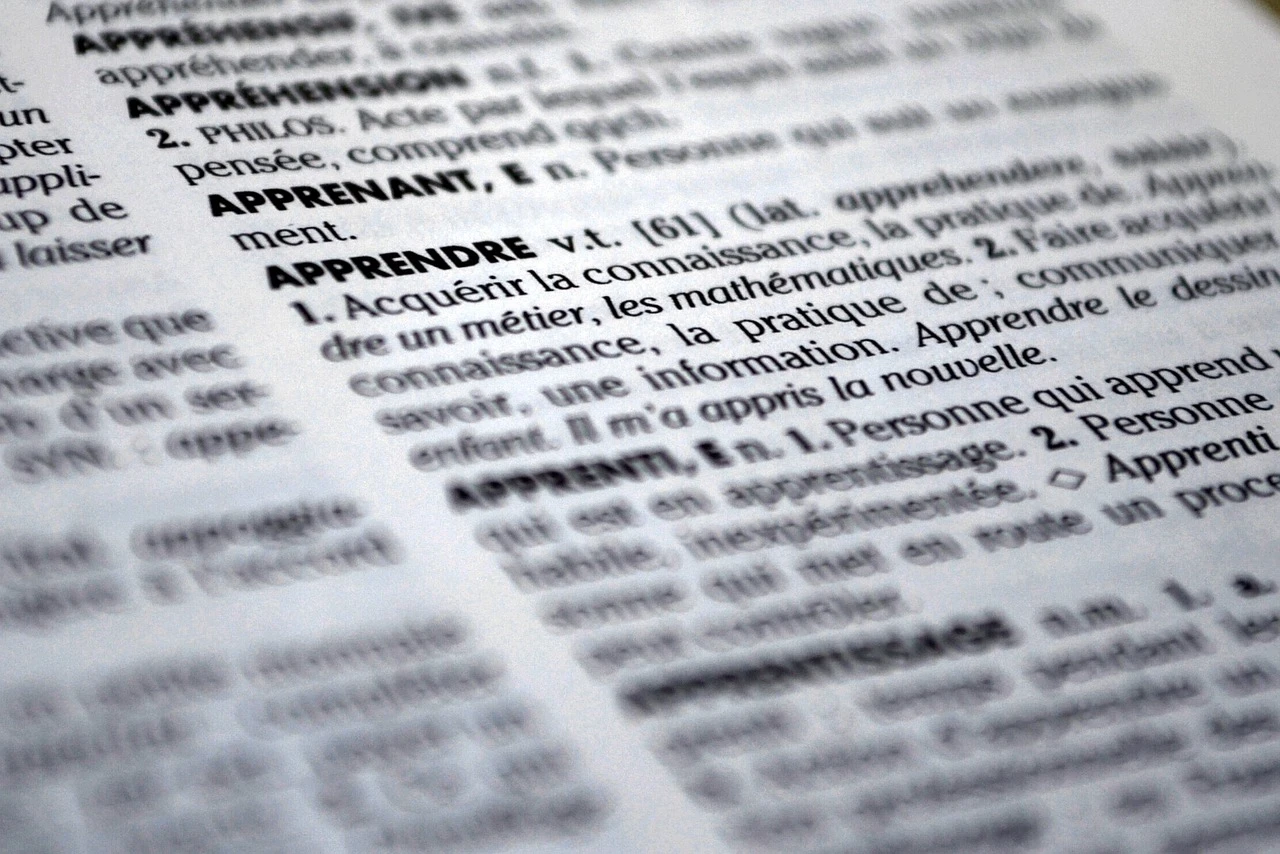Improve Your Skills: Tips on How to be Good at Word Hunt
A game that can keep on your intellectual edge, and keep you coming back to solve puzzle after puzzle, Word Hunt is a game all about solving a grid of jumbled letters. Improving your skills in finding as many words as you can in the jumble within the time limit, whether casually or competitively, can be a ton of fun. There’s always more that can be done to improve your skills, as well. Here, we’re going to look into techniques, strategies, and tips that can help you master the game of Word Hunter, improving your scores across the board.

Mastering Word Hunt Techniques
First of all, before you can start implementing any of the main strategies, you should have an idea of the game’s core techniques. Once you’re able to master these strategies, you can improve your game on a fundamental level.
Focus on Short Words First
Short words, typically consisting of two or three letters, can be found quickly and provide a steady flow of points. In the early stages of the game, finding short words helps establish momentum. Some common short words to look for include "an," "in," "it," "to," "up," and "on." These words are easy to spot and are usually abundant in any Word Hunt puzzle.
While short words don’t offer many points individually, they allow you to build a rhythm and start clearing more space on the board for longer words.
Look for Prefixes and Suffixes
There are a lot of words with common prefixes and suffixes and, once you start to identify them, you can often quickly identify the rest of the word. Common prefixes include “pre-,” “re-,” and “un-”, while common suffixes include “-ing,” “-ed,” and “-er.” For instance, if you spot the prefix “pre-,” you might quickly spot the words “prequel,” “prelude,” or even “prefix,” following up.
Train so that you’re able to see the patterns common in words more quickly, and you will soon start to increase your word count much more quickly as a result.
Focus on Common Letter Combinations
There are other letter combinations that more typically appear together within words, and spotting these can help you spot the rest of the words surrounding these. Common combinations include “th,” “st,” “sh,” “ch,” “ing,” and “ly.” From a “th” alone, you might be able to spot the words “this,” “that,” “there,” and “them,” for instance.
Much like with spotting prefixes and suffixes, spotting these common combinations will help you spot patterns much more quickly, racking up your word score.
Use Diagonal, Horizontal, and Vertical Patterns
Word Hunt allows you to form words in various directions, not just horizontally and vertically but diagonally as well. It’s essential to train your brain to search in all directions. Practice moving between these different patterns quickly, so you don’t limit yourself to words that follow one direction.
Diagonal word searches can be tricky but are often underutilized. With practice, you can train your eyes to spot these diagonal patterns as easily as horizontal or vertical words.
Use Word Stems
Being able to quickly spot stems allows you to identify and build more words from the same root letters, which can quickly rack up your score with little effort. Stems are the base forms of words that can then be extended, like how the “act” is a word, itself, but can also be extended into “action,” “acting,” or “react.”
Finding word stems offers a scoring double whammy, and also decreases the overall cognitive load of finding new words.
Playing Like a Pro
With the basics mastered, you should then think about how the more advanced techniques and strategies that the upper-level players are able to incorporate. Here are a few that you should start doing now if you’re looking to become truly competitive.
Expand Your Vocabulary
Effectively, the better your vocabulary is, the better you’re likely to be at Word Hunt. The ability to recognize more words is a fundamental advantage. Vocabulary is something that you’re going to build up over time, but you can practice by reading more often and playing other word games that expand your word knowledge.
You can also study word lists, such as those that are included in other word games, or even by going through the dictionary. If you can start with two-letter or three-letter words, these can help you quickly rack up your score in the game.
Prioritize High-Scoring Words
In competitive Word Hunt, it’s essential to focus not just on quantity but also on quality. Longer words and words with rare letters (like “Q,” “Z,” “X,” or “J”) offer higher point values. Whenever possible, prioritize these words to maximize your score. While short words can boost your word count, it’s the longer, rarer words that will give you the edge.
Look for opportunities to turn short words into long ones. For example, adding an “S” to a word makes it plural and can quickly increase your score.
Work Around High-Value Letters
As mentioned, some letters have higher values than others, typically because they’re less commonly used in words. Finding high-value letters in words, such as “Q,” “X,” “Z,” and “J” should always be capitalized on by building multiple words around them.
You should also prioritize using common combinations using high-scoring letters, such as “ex” and “qu,” such as “quiet,” “qualm,” and “quote.” This can help you quickly string together high-scoring words.

Use a Systematic Approach
Scanning the grid systematically can help you be a lot more efficient, such as by moving through the grid row by row and then column and column. Some people can find their eyes tiring with this method, so visually segmenting the grid into quadrants can also work for them.
These strategies reduce the time you spend scanning aimlessly, allowing you a more structured approach to how you play.
Avoid Repetition
In competitive games, once a word has been used, it cannot be used again. Be mindful of the words you’ve already entered to avoid wasting time repeating words that won’t score points.
Keeping track of your previous entries, either mentally or with quick glances at the word list, will help you move faster.
Uncovering Big Words
Bigger, longer, and more complex words are always going to increase your Word Hunt score more, and become even more valuable against skilled opponents who have already mastered the game. Here are a few ways to spot them more easily.
Start with Short Words, Then Expand
As mentioned, there are a lot of stem words that can then be expanded into longer and higher-scoring words. If you have already found the word “run,” then you should start scanning for extensions to it, such as “runner” and “running.” Longer words like “running” can have their extensions, such as “overrunning,” as well.
This save times in having to find new words, and allows you to capitalize on a point-scoring combination with even more points.
Spot Potential Compound Words
Aside from stem words, there are also compound rooms. Our last example included “overrunning” which is already a compound of “over” and “run.” Other common compound words include things like “notebook” and “football.” Try to memorize compound words so that you can quickly scan around short words you find for additional points.
Use Plural Forms
Adding an “S” to a word is one of the simplest ways to increase your score. Whenever you find a singular noun, immediately look for the option to pluralize it. For instance, if you find “dog,” don’t forget to also add “dogs” to your list.
Likewise, consider other word forms like past tenses, such as turning “jump” into “jumped” or “jumps.” These small changes add up and can lead to a higher score.
Keep a Mental List of Big Words
There are words that are a good deal easier to spot in Word Hunt games than others. Many of these words will include common prefixes, suffixes, repeating letter combinations, and the like which makes them easier to build once you’re able to spot their common elements. Work on memorizing and keeping a mental list of these go-to big words, so that it’s easier to spot them in the heat of the moment.
Words such as “interaction,” “strategy,” and “description” often appear in larger grids, for instance, so you can start with memorizing these. You will soon begin to notice more a lot more easily, especially as you play more often.

Word Hunt Strategies Revealed
With the basic and advanced techniques learned above, you can then go on to formulate competitive strategies that can help offer you an edge, especially when playing against other players.
Play with a Time-Based Focus
Given that Word Hunt is often played as a timed game, learning to manage your time is vital. You should focus on playing in phases. The first phase involves spotting as many simple words as you can. The second is spending more time finding longer words to maximize your point potential. Finally, use your last seconds to go back to scanning for simpler shorter words words that might stick out more now that you have filled in more of the grid.
Use Word Anagrams
Anagrams, which are words formed by rearranging letters, are a common feature in Word Hunt. As you find one word, immediately think of its anagram. For example, if you find “rat,” think of “art” and “tar.”
Learning to spot anagrams quickly can lead to multiple word entries in a short period, giving you extra points without having to search for entirely new words.
Create Word Families
When you find a common combination, prefix, or suffix, you should spend some time searching around it to see if you can quickly create multiple words from the same group. If you find “act,” you can quickly scan for “acting,” “actor,” “action,” and “react.”
Avoid spending too much time on any word root, but make sure you take at least a little time to increase your word count with very little effort.
Play Practice Rounds Regularly
Practice makes perfect. Play more and your brain will be able to recognize patterns and letter combinations much more quickly. You can become reflexively better at spotting good scoring opportunities and finding those longer words that can really build up your skills. Alongside practicing your vocabulary, this is the primary key to success.
Becoming a Word Search Game Pigeon Champion
Game Pigeon is a popular platform for playing Word Hunt against friends, and becoming a champion on this platform requires dedication, strategy, and consistent practice. Here’s how you can work toward becoming a Game Pigeon Word Hunt champion:
Know the Grid Layouts
Familiarity with Game Pigeon’s grid layouts will give you an edge. Each grid layout offers different letter arrangements, and being able to recognize common patterns quickly will save you time. If you’re familiar with the letters that often appear in different parts of the grid, you can preemptively focus your search in those areas.
Study Opponents’ Patterns
In competitive play, learning from your opponents is essential. After each game, take time to review the words they found, especially those you missed. Studying their word-finding patterns will help you spot gaps in your own technique and improve your gameplay in the next round.
Set Point Targets
Having clear point targets for each round can help you stay focused and motivated. Depending on your skill level and the difficulty of the grid, set achievable point goals for yourself, such as a 5% or 10% improvement in each round. This keeps you striving for improvement and helps you track your progress over time.
Practice on Different Devices
Game Pigeon is played on mobile devices, and practicing on both larger tablets and smaller phones can make a big difference. Switching between different devices helps you adapt to different screen sizes, improving your adaptability in competitive matches.
Maintain Composure Under Pressure
Word Hunt on Game Pigeon is often fast-paced and intense, with a limited time frame. Learning to stay calm and focused under pressure is vital. Avoid rushing, as it can lead to mistakes or overlooked words. Practice taking deep breaths and focusing on one section of the grid at a time to maintain composure.
Become A Word Hunt Champion
If you want to master Word Hunt, then you need to work on your foundational skills, get an idea of the techniques that help you expand on them, and focus on a full-game strategic approach. You need to practice, as well, regularly playing the game and expanding your vocabulary. With time and effort, you’ll be able to dominate Word Hunt and outperform your opponents, no matter the competition level.
Seasonal Word Search Games
More Games
Disclaimer
DISCLAIMER: The games on this website are using PLAY (fake) money. No payouts will be awarded, there are no "winnings", as all games represented by 247 Games LLC are free to play. Play strictly for fun.

































